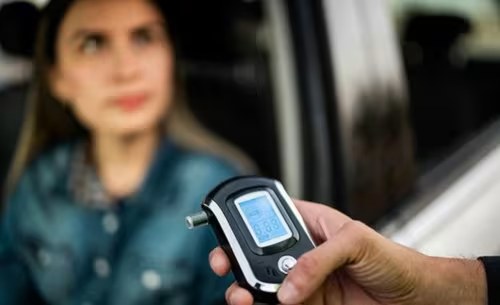Disclaimer: This guest post was written by a third party and is for informational purposes only. It does not constitute legal advice or create an attorney-client relationship with The Meehan Law Firm. For legal advice, please contact our office.


California's DUI landscape will be shifting dramatically in 2025. Major legislative updates have introduced stricter penalties, tighter enforcement measures, and a renewed focus on public safety. Understanding these changes is essential for anyone who drives in the state. The consequences for even a first offense are becoming more severe, with sweeping reforms impacting license suspensions, probation terms, and alcohol education requirements.
Longer License Suspensions Reshape Consequences
One of the most notable changes in 2025 is the extension of license suspension periods for DUI convictions. First-time offenders now face a mandatory license suspension of six months or longer, compared to the previous four-month standard. For second and third offenses, the suspension periods have been expanded even further - up to two years in certain cases. The law will also allow a lifetime suspension if convicted of a fourth DUI within 10 years.
Additionally, the rules surrounding restricted licenses have tightened. Drivers who wish to regain limited driving privileges must install an ignition interlock device (IID) for a minimum of six months, even for a first offense. These changes reflect California’s commitment to reducing DUI-related accidents by keeping impaired drivers off the road for longer periods. The current law makes the IID optional, and that will no longer be the case.
Mandatory Alcohol Education Expands Requirements
The 2025 laws also mandate more comprehensive alcohol education programs. All DUI offenders, including first-time violators, must complete an extended DUI education course. The new laws put in place strict attendance rules, and if you are kicked out of the program due to excessive absences, you will be required to start the school again from the beginning.
The curriculum emphasizes not only the dangers of impaired driving but also includes counseling and behavioral intervention strategies. The goal is to reduce recidivism by addressing the underlying causes of impaired driving through education and rehabilitation.
Stricter Probation Rules Leave No Room for Error
Probation terms for DUI offenses have become notably harsher under the 2025 legal reforms. Standard probation now includes stricter conditions, such as mandatory attendance at regular alcohol monitoring sessions and a prohibition on visiting establishments where the primary business is the sale of alcohol.
Violating any condition of probation - even a minor technical violation - may now trigger immediate jail time without the need for a probation revocation hearing. These zero-tolerance policies are designed to encourage complete compliance and minimize risks associated with repeat offenses.
New Blood Alcohol Concentration Limits by Driver Category
California's legal BAC limits were updated in 2025 to impose stricter thresholds for certain categories of drivers. While the general adult limit remains 0.08%, commercial drivers are now subject to a limit of 0.04%, and the law now incorporates rideshare drivers and taxi drivers.
For drivers under the age of 21, or on DUI probation, the state has introduced an absolute zero-tolerance policy - any detectable BAC above 0.00% results in automatic penalties. These updates reflect a heightened effort to protect public safety by holding vulnerable or high-risk driver categories to stricter standards.
Harsher Penalties for Repeat DUI Offenders
Repeat offenders face steeper consequences than ever before under the 2025 DUI law changes. A second DUI conviction within 10 years can now result in a mandatory 90-day jail sentence, compared to the prior 48-hour minimum. Third-time offenders face a minimum of 180 days in jail, and risk felony charges, significant state prison time, and an automatic three-year license revocation.
The stakes have increased significantly, making it critical for anyone facing a second or subsequent DUI charge to understand the life-altering consequences that now accompany these offenses.
Enhanced Enforcement Measures Are in Full Force
The new laws have also empowered law enforcement agencies across California to engage in enhanced DUI enforcement initiatives. Increased sobriety checkpoints, roving DUI patrols, and advanced roadside testing technologies have been deployed statewide.
Further, under the 2025 updates, refusal to submit to a chemical test - such as a blood or breath test - results in immediate license suspension for one year and carries additional fines, even if the driver is not ultimately convicted of DUI. The refusal itself is treated as a major violation under California law, reinforcing the state's strong implied consent policy.
Steps to Take if Charged Under 2025 DUI Laws
Navigating the complexities of California’s new DUI laws requires a proactive and informed approach. Anyone charged under the 2025 statutes should immediately seek experienced legal representation. It is critical to preserve evidence, request a DMV administrative hearing within the 10-day deadline, and begin preparing a strong legal defense.
Because penalties have increased and enforcement efforts have intensified, handling a DUI charge without professional guidance is riskier than ever before. Quick action can make a significant difference in the outcome of the case, including minimizing potential penalties and safeguarding future opportunities.
(844) 4-DUI STOP
Categories
Need Help?
Free Consultation, discreet, and no obligation- talk to an attorney.
More Blogs

How Can You Defend Someone Who Is Guilty?
Defense attorneys protect constitutional rights, ensure due process...
Read More..
Why a Second DUI Might Be Your Wake-Up Call
Facing a Second DUI in California: Why It Should Be Your Wake-Up Call..
Read More..
How To Spot a Bad DUI Lawyer in 10 Minutes or Less
Choosing the Right DUI Lawyer in California: Spotting Red Flags Early...
Read More..



